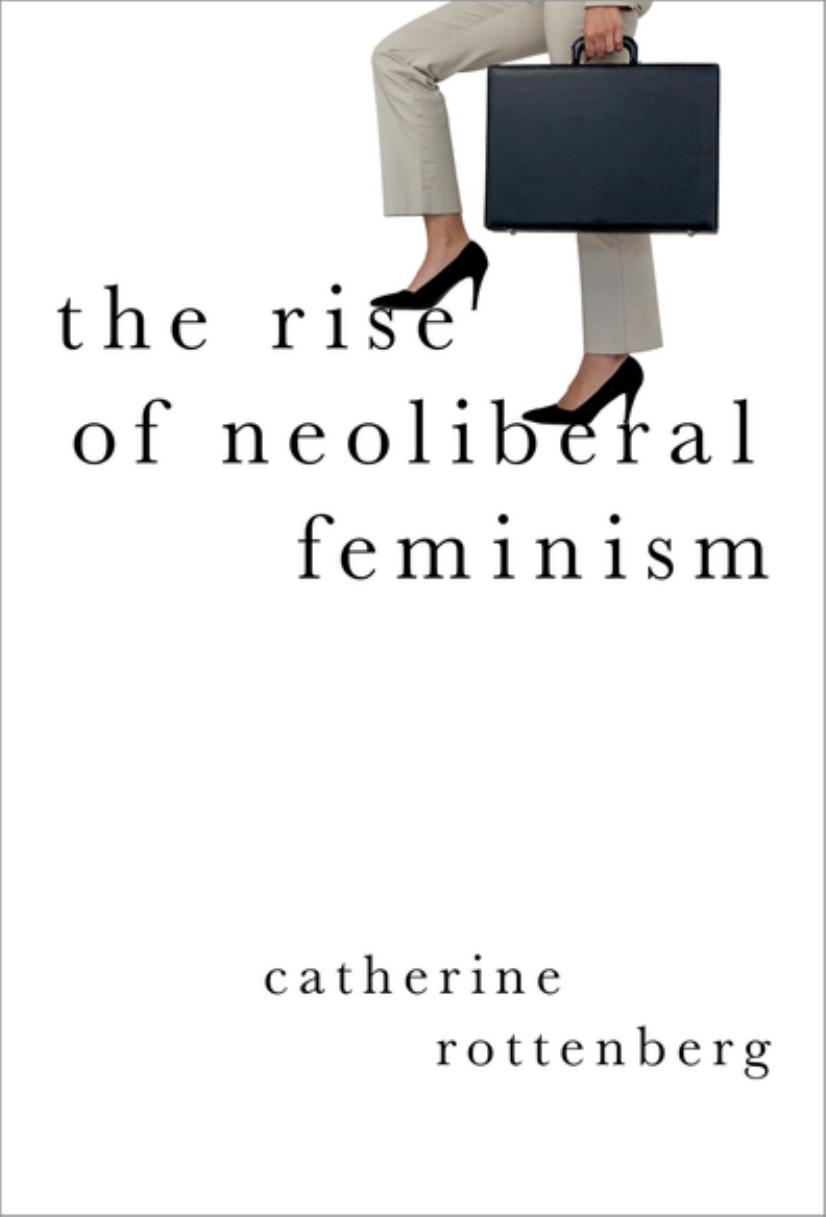The Rise of Neoliberal Feminism by Catherine Rottenberg

Author:Catherine Rottenberg
Language: eng
Format: epub, pdf
Publisher: Oxford University Press
Published: 2018-12-14T16:00:00+00:00
PRIVILEGE AND STRUCTURAL INEQUALITIES
This orientation toward the present must therefore be understood to constitute a temporal/affective nexus that makes up one of the technologies of self within neoliberal feminism. Not only does this temporal/affect nexus produce properly neoliberalized feminist subjects whose normative trajectory—striving to craft a work-family balance—helps to resolve the dilemma of reproduction for neoliberal rationality, at least for the time being, but it also reifies an individuated feminist subject by ensuring that each woman is concerned with her own individual psychic well-being. Indeed, the self-investment here is predominantly a psychic one. These blogs help expose the affective and psychic “work” on the self that is necessary to be present for “these moments that [we] will not get back.”41 Furthermore, analyzing the descriptions of this intensive affective work also reveals the way in which neoliberal feminism “intersects with extant powers of stratification, marginalization, and stigma to generate new configurations and iterations of these powers.”42
Take, for example, Rowley’s entries on privilege. In these entries, she berates herself for not being aware enough of her own privilege, while mentioning—albeit obliquely—the ongoing violent assault on black bodies in the United States. Rowley’s entries on privilege occur against the backdrop of the emergence of the Black Lives Matter movement, which coalesced in the wake of the murders of the unarmed African-Americans Trayvon Martin in Florida; Michael Brown in Ferguson, Missouri; and Eric Garner in New York. In the months before Rowley’s posts, study upon study had been compiling and publishing data showing that unarmed black men were at least seven times as likely as unarmed white men to die from police gunfire. In 2015 alone, 1,134 black men were killed by law enforcement officials, and black people were killed at twice the rate of whites, Hispanics, and Native Americans. About 25 percent of the African Americans killed were unarmed, compared with 17 percent of white people.43 Yet, Rowley chooses to focus on the murder of police officers in Dallas, Texas, during a Black Lives Matter protest, asking how one should respond to such manifestations of violence. While she vacillates among various answers on what one should do with (so much) privilege, Rowley’s ultimate response is a question. “What if looking honestly at our current selves and our current lives and our histories brings awareness of the privilege we have enjoyed (or not enjoyed), privilege that has maybe heretofore been largely, problematically unconscious? Isn’t that something?”44
Granted that addressing racialized violence and social injustice in the United States involves self-awareness, which may very well be the first step in confronting the vast differential in the way privilege and precarity are distributed throughout society, Rowley’s solution remains precisely on the level of self-examination. Her blog entries on privilege lay bare—in black and white—the process of acknowledging structural inequalities and acute injustice only to disavow them completely. Thus, in her blog Rowley literally performs the “invisibilization” of not merely gender inequalities but also racial violence as well as class stratification through and upon which social hierarchies in the United States have been created.
Download
The Rise of Neoliberal Feminism by Catherine Rottenberg.pdf
This site does not store any files on its server. We only index and link to content provided by other sites. Please contact the content providers to delete copyright contents if any and email us, we'll remove relevant links or contents immediately.
| Anthropology | Archaeology |
| Philosophy | Politics & Government |
| Social Sciences | Sociology |
| Women's Studies |
The Rules Do Not Apply by Ariel Levy(4969)
On the Front Line with the Women Who Fight Back by Stacey Dooley(4873)
The Lonely City by Olivia Laing(4801)
Bluets by Maggie Nelson(4556)
The Confidence Code by Katty Kay(4260)
Three Women by Lisa Taddeo(3433)
Not a Diet Book by James Smith(3426)
Inferior by Angela Saini(3314)
Confessions of a Video Vixen by Karrine Steffans(3308)
A Woman Makes a Plan by Maye Musk(3254)
Pledged by Alexandra Robbins(3178)
Wild Words from Wild Women by Stephens Autumn(3153)
Nice Girls Don't Get the Corner Office by Lois P. Frankel(3044)
Brave by Rose McGowan(2823)
Women & Power by Mary Beard(2767)
Why I Am Not a Feminist by Jessa Crispin(2760)
The Girl in the Spider's Web: A Lisbeth Salander novel, continuing Stieg Larsson's Millennium Series by Lagercrantz David(2721)
The Clitoral Truth: The Secret World at Your Fingertips by Rebecca Chalker(2720)
I Who Have Never Known Men by Jacqueline Harpman(2669)
